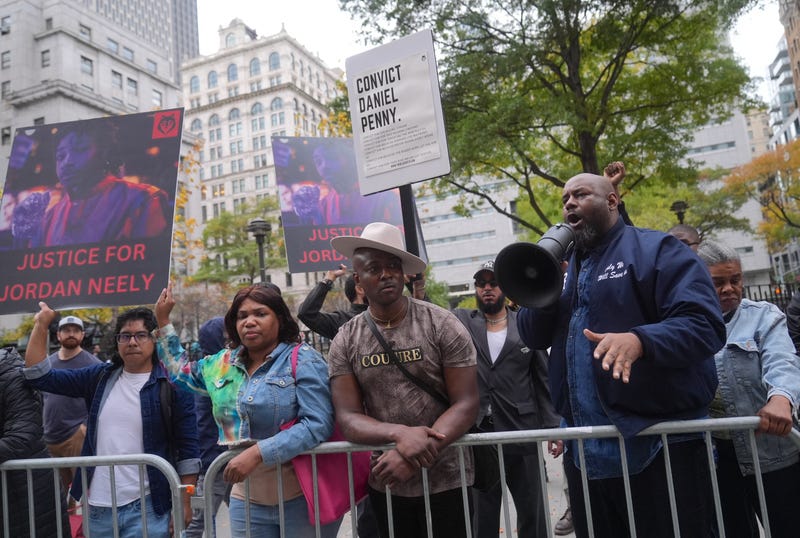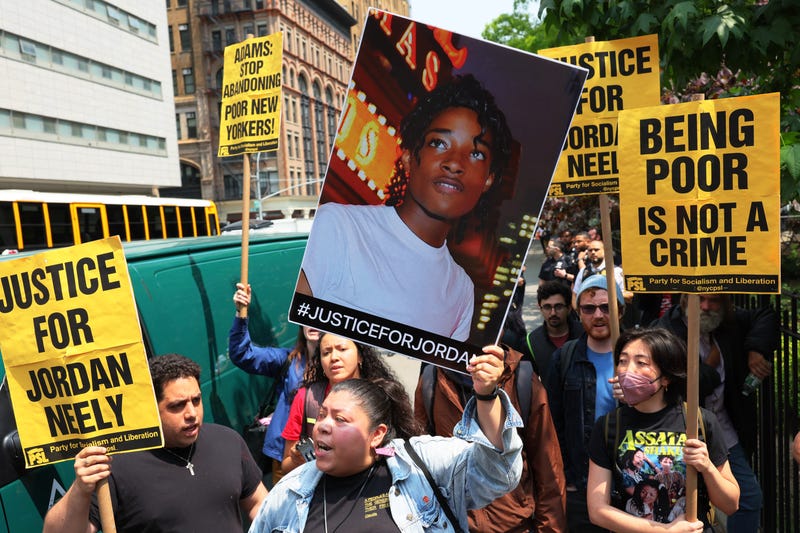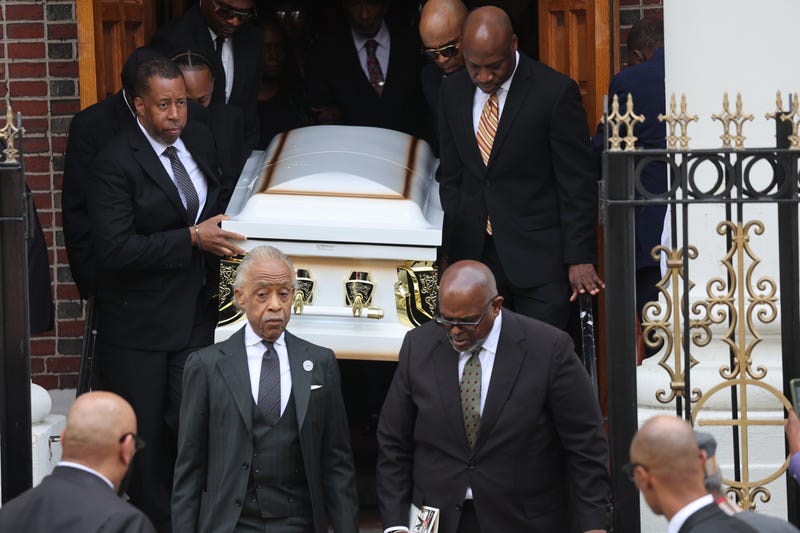
NEW YORK (1010 WINS/AP) — A defense lawyer asked jurors to put themselves in the shoes of frightened subway riders as closing arguments began Monday in the trial of a Marine veteran charged with choking an irate, homeless man to death after an outburst on a New York underground train.
Daniel Penny claims he acted in self-defense against threatening behavior when he put Jordan Neely in a chokehold on May 1, 2023. Penny has pleaded not guilty to manslaughter and criminally negligent homicide.
Prosecutors say Penny was justified in using some physical force after Neely shouted in a crowded train about being willing to die, willing to go jail or — as Penny and some other passengers recalled — willing to kill. But prosecutors argue that Penny recklessly went way too far in dealing with an unarmed man.
"You obviously cannot kill someone because they are crazy and ranting and looking menacing, no matter what it is that they are saying,” Manhattan Assistant District Attorney Dafna Yoran told jurors Monday.
Defense attorney Steven Raiser told jurors to imagine they were on that train when Neely got on, “filled with rage and not afraid of any consequences.”
“You’re sitting much as you are now, in this tightly confined space. You have very little room to move and none to run," defense attorney Steven Raiser told jurors.
“Danny acted to save those people,” he added.

Penny's reaction to Neely touched raw nerves and fueled debate about race relations, public safety, urban life and different approaches to crime, homelessness and mental illness.
Some in New York and around the country see Penny, a 26-year-old Marine veteran turned architecture student, as a valiant protector of fellow subway riders who feared the erratic Neely was on the verge of violence. Others view Penny as a white vigilante who summarily killed a Black man who was in need of help.
Neely, 30, once was among the city's corps of subway and street performers and was known for his Michael Jackson impersonations. But after his mother was violently killed when he was a teenager, Neely was diagnosed with depression and schizophrenia, was repeatedly hospitalized, struggled with drug abuse and had a criminal record that included assault convictions.

During the monthlong trial, the anonymous jury heard testimony from subway passengers who witnessed the roughly six-minute chokehold, as well as police who responded to it, pathologists, a psychiatric expert, a Marine Corps instructor who taught Penny chokehold techniques and Penny's relatives, friends and fellow Marines. Penny chose not to testify.
Jurors watched videos recorded by bystanders and by police body cameras and saw how Penny explained his actions to officers on the scene and later in a stationhouse interview room.
“I just wanted to keep him from getting to people,” he told detectives, demonstrating the chokehold and describing Neely as “a crackhead” who was “acting like a lunatic.”
“I'm not trying to kill the guy,” he insisted.

Multiple witnesses said Neely shouted about needing food and something to drink, whipped his jacket to the floor and started screaming. They differed in descriptions of his movements and whether they were threatening. Several passengers said they were alarmed, and some were thankful when Penny subdued Neely.
City medical examiners ruled the chokehold killed Neely. A pathologist hired by Penny’s defense contradicted that finding, saying Neely was killed by a variety of other factors.
Prosecutors noted that the veteran continued to grip Neely's neck after the train stopped and anyone who wanted to get out could do so, after bystanders urged Penny to let go, and even after Neely had been still for nearly a minute.
“You, the jurors, should unequivocally state with your verdict that no person’s life can be so unjustifiably snuffed out," Yoran said Monday.
The defense contends Penny held on because Neely tried to break loose at points and that the pressure on the man's neck wasn't consistent enough to kill him, and his death could have been caused by pre-existing medical conditions or the substance K-2 in his system.
Penny's attorneys told jurors that he used a "civilian restraint" to subdue Neely, not a textbook Marine "blood choke," which expert testimony indicated could kill someone in 13 seconds. Attorneys claimed that Penny only meant to restrain Neely until law enforcement arrived, but that his "sickling crisis," which is related to sickle cell disease, could have been a factor in his death.
"Massive sickling and dying cannot claim to be Dan's fault — it's not a homicide it 's a medical condition," Penny's attorney said. "He cannot be blamed for Mr. Neely's medical condition."
"This man is not guilty of these crimes. Danny was standing up for [people] on that train — sacrifice people made on that train, gave of themselves to stand up for Danny," the defense said as it concluded. "They had truth on their side, not intimidated by idle threats. Walked past a gauntlet of protestors to do what — help Danny they way he helped them."
"We are here today because [the] defendant used way too much force for way too long, in way too reckless a manner," prosecutors disputed. "We cannot as a society tolerate unjust and untimely death of a fellow citizen."
Jurors could start deliberating as soon as Tuesday, possibly into Wednesday, the judge said.
